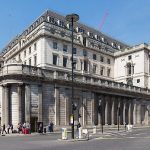US Uncut – James Meredith didn’t sit quietly, and neither can we
Carl Gibson is the founder of US Uncut and CIVIL USA, the US Uncut chapter in Jackson, Mississippi.

“I love Mississippi! I love her people! Our customs. I love and respect our heritage.” — Mississippi Governor Ross Barnett, 1962
The speech was light. Its implications were heavy.
Eventually, Gov. Barnett was forced to acquiesce to the U.S. Supreme Court ruling favoring Meredith after reaching a deal with U.S. Attorney General Robert F. Kennedy. And on October 1st, 1962, after more than a year making his case to the courts, James Meredith became Ole Miss’s first black student.
Meredith is still alive, and still lives in Jackson. He and I share the same ZIP code. I ran into him at the library yesterday and told him about the UK Uncut/US Uncut movements, and what we’re trying to accomplish through international nonviolent direct action on February 26, 2011. We exchanged contact information and then he put his hand on my shoulder to say something before walking away.
“You’re doing good work, young man. Keep fighting.”
Meredith’s fight is not unlike our fight. We’re both asking for simple requests – he wanted the opportunity to attend the same school as a white man, and we want to make sure our corporate citizens are paying their fair share in taxes to their government like everyone else. We’re likely to encounter staunch opposition from the proponents of the status quo, as Meredith did with Barnett and the charged climate of racial division in the South. Meredith succeeded in overcoming the odds and achieving his goal. Our goal of ending corporate tax evasion has yet to be seen, and is completely dependent on the efforts of local organizers in the 25 states where local chapters have formed.
I’ve been asked about the rising tide of populism possibly being detrimental to the need for businesses to invest and create jobs. The implication is that somehow, because we’re coming together to demand that the 16th Amendment to the U.S. Constitution also be followed by the ruling corporate elite, that we’re causing an anti-business climate. I’ve been told that our organizing efforts shouldn’t be publicized, that the movement should try to remain invisible lest we invite the fury, money and lawyers from billionaire tax dodgers like Bank of America.
In today’s economy, American workers are being told that those lucky enough to have jobs had better not do anything to rock the boat or piss off the boss, especially in a right-to-work state. The implication is that exercising our First Amendment rights of free speech and peaceful assembly could endanger our careers, especially if we live in a right-to-work state.
I’m through sitting quietly, aren’t you? I’m through watching decent, hard-working public school teachers lose their jobs to budget cuts, file for unemployment and EBT and live in poverty, especially while 2/3rds of American corporations are shirking their duty to their country by exploiting corporate tax loopholes. If we want a business climate that fosters job growth and economic opportunity, we have every reason to assemble and demand that our corporate owners pay income taxes to the United States for the opportunity to earn income here.
I don’t think that’s an unreasonable request. I don’t think that position should have to draw partisan ire or controversy. I’d like to think making everyone pay their fair share in taxes would be an easy position upon which both sides can reach consensus.
Business owners have to learn the way of the world – if they don’t pay taxes, budgets get slashed and workers get fired. If workers get fired, then there’s less money spent in local economies and less demand for local goods and services. Without the necessary demand, local small business owners have to also cut costs and fire workers, adding to unemployment and worsening the problem.
If the richest of the rich truly care about this country, they must realize they have an explicit obligation to pay their taxes like the rest of us. If they don’t, and if our leaders refuse to act, then its incumbent upon the people to take the message to the streets and tell everyone we can to come aboard and demand economic justice.
Stand with us on February 26th. If you’re interested in starting or joining a local movement in your community, email usuncut@gmail.com or visit www.usuncut.org.
Let’s get to work.
“Success is to be measured not so much by the position that one has reached in life as by the obstacles which he has overcome while trying to succeed.” — Booker T. Washington
Actions against tax-dodging banks will also be taking place in the UK on the same day, Saturday February 26th. Find your local UK Uncut event at www.ukuncut.org.uk.


That’s a brilliant piece. What Meredith wanted was to be recognised as a human being, like any other. Underpinning the present round of cuts it the same insidious notion that there are different classes of human being, this time differentiated by income. Somehow the super-rich are more deserving and should be allowed to operate under a different set of rules.
All human rights are founded on the notion that there is only one class of person and that simply being human qualifies each and every one of us for membership. In that sense all struggles for justice and equality are the same struggle, whether James Meredith’s or ours.